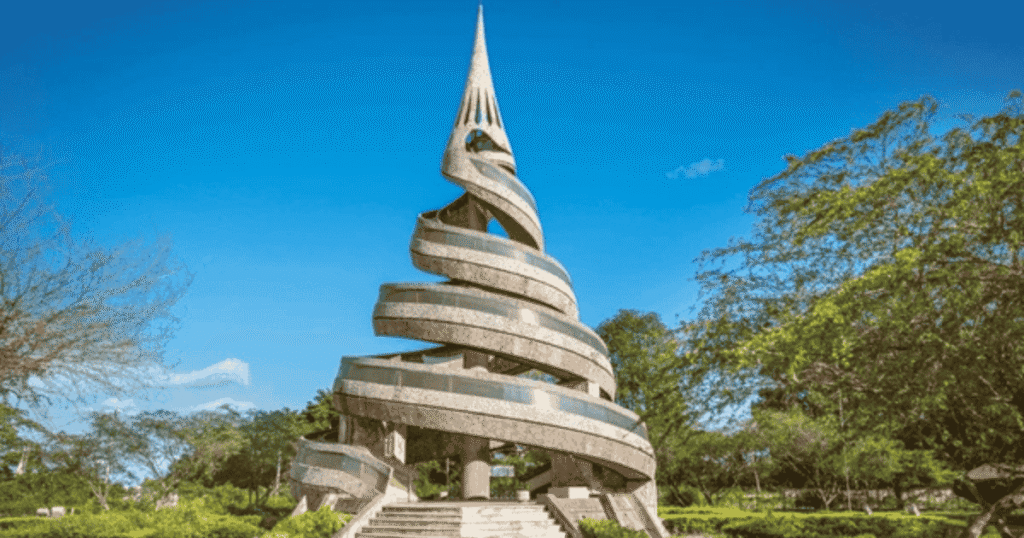Cameroon economy, jobs and fuel—this is the reality no one wants to face.
It’s 6 a.m. in Douala. Traffic coils through crumbling roads, drivers bracing for the next police checkpoint and the inevitable bribe.
In Bamenda, a cocoa farmer stares at the crops he will sell for less than $1.20 per kilogram, even though Cameroon is a top-five cocoa producer in Africa. His children walk miles to a school with no desks.
In Kribi, fishermen watch billion-dollar oil tankers and timber ships leave port, knowing the profit will never reach their villages, where most survive on less than $4 a day.
The wealth is there. Cameroon has oil, timber, cocoa, bauxite, gold, fertile volcanic soil, and one of Africa’s most diverse climates. Yet the average Cameroonian earns just $1,500 a year.
So, where does all the money go?
1. Our Wealth Is Real — But It’s Leaking Like Water in a Sieve
Cameroon is not a poor country. It’s one of the most resource-rich nations in Africa:
- Volcanic soils in Limbe that could feed millions.
- Rainforests holding over 150 timber species.
- Massive mineral deposits: bauxite, cobalt, nickel, gold, iron ore.
- A coastline with deep-water ports and some of the most fertile fishing waters on the continent.
In 2022 alone, Cameroon earned over $3 billion from oil exports and remains one of the top five cocoa producers in Africa. Yet roads to these farming regions are falling apart. Farmers live in poverty. And the revenues? They disappear—wasted through bureaucracy, bloated contracts, and systemic corruption.
If just 20% of oil revenues were reinvested transparently, Cameroon could build over 1,000 km of roads, 15 regional hospitals, and 50 youth innovation hubs every single year.
But it’s not happening.
2. The Roads, the Checkpoints, and the Ghost Money Nobody Tracks
Travel between Douala and Bamenda or Yaoundé and you’ll understand: less than 7% of roads are paved. Drivers dodge potholes and pay at dozens of police checkpoints, each one demanding a “small something” that rarely reaches government accounts.
What should be security control has become survival hustling. Meanwhile, tollbooths are largely manual. Billions are lost every year because there’s no digital tracking of collections.
Imagine this: every toll digitized, every bribe eliminated, every franc entering the national budget. That alone could transform road networks and public services.
3. Cameroon Economy, Jobs and Fuel Prices: Hidden Treasures That Stay Hidden
Cameroon is called “Africa in miniature” for a reason.
- It has over 250 languages and ethnic groups, making it a cultural superpower.
- Tourism gold mines like Mount Cameroon, Kribi beaches, Limbe’s botanical gardens, and UNESCO sites like the Dja Reserve remain underdeveloped.
- Rivers like the Sanaga and Wouri could provide massive hydroelectric power and irrigation, yet villages nearby lack clean water.
- Limbe’s volcanic soil could feed the nation, but local farmers lack storage and processing facilities.
Instead of turning resources into finished products, we export them raw and import processed goods at higher costs. Cassava, cocoa, and ginger rot unprocessed while supermarkets fill with imported tomato paste and cooking oil.
If Cameroon built just three regional agro-processing plants, it could feed itself and export finished products globally.
4. Cameroon Economy, Jobs and Fuel Prices: Youth Flee While Old Men Hold Power
Cameroon’s diaspora is full of doctors, engineers, and creators thriving abroad. Why? Because at home, innovation is punished and connections matter more than competence.
The average politician is over 60. The average citizen is under 25. That gap explains everything. Leadership is locked, and young people dream not of building businesses but of escaping—to Canada, Dubai, or the UK.
Instead of investing in factories, we build mansions. Beautiful, giant homes that sit empty while unemployment rises.
5. Cameroon Economy, Jobs and Fuel Prices: Jobs, Education, and a System That Won’t Evolve
Our universities are full of theory. Banking students graduate, but many banks can’t even process interbank transfers reliably.
Cameroon ranked 123rd on the Global Innovation Index in 2024, proof of how far behind we are. There are too few incubators, accelerators, and youth-driven funding programs. Even digital businesses suffer under unstable internet and poorly thought-out taxes like the infamous “Momo tax.”
If the government launched national innovation challenges and TVET programs linked to industries like agro-processing, tech, and mining, youth employment would rise—and so would GDP.
6. Corruption, Tribalism, and Nepotism Bleed the Nation
The Cameroon Economy Jobs and Fuel problem is not just money. It’s mindset.
From customs to tollgates, from procurement to healthcare, corruption is normalized. Public sector jobs are often given based on tribe or family, not merit. Entire institutions are filled with relatives of top officials.
This culture costs us billions. It also costs us trust. And without trust, no system works.
7. Cameroon Economy, Jobs and Fuel Prices: Urban Chaos and Missed Opportunities
Cities are growing with no structure. Anyone can build anywhere—even on roadsides. Drainage systems are ignored. Floods are frequent. There’s no serious city planning, no clear vision for expansion.
What if we created alternate roads and commercial corridors? What if we stopped illegal construction along key arteries and used zoning laws to unlock property value?
The space and the land exist. We just need the will.
8. What Would It Take to Fix the Cameroon Economy?
It doesn’t require miracles:
- Digitize tolls and checkpoints to end leakage.
- Build agro-processing hubs to add value locally.
- Invest in roads, hospitals, and public water with oil revenues.
- Cut nepotism and hire by merit.
- Empower youth entrepreneurs with real incubators and funding, not just slogans.
- Upgrade tourism in Kribi, Limbe, and Mount Cameroon to global standards.
Cameroon could triple its GDP within a decade by simply doing what other emerging nations like Rwanda have done: prioritize people over politics and long-term infrastructure over short-term enrichment to solve Cameroon Economy, Jobs and Fuel issues.
Final Thought: Cameroon’s Wealth Is Not a Myth
Picture this: a cocoa farmer in Bamenda exporting chocolate bars, not raw beans. A truck driver going from Douala to Yaoundé without a single illegal checkpoint. Tourism buses arriving in Limbe and Kribi because the beaches rival Zanzibar.
Cameroon has everything. Fertile land. Natural resources. Ports. People. But unless we close the leaks, hold leaders accountable, and build with vision, we will stay rich on paper and poor in reality.
The time to act is now.




